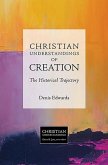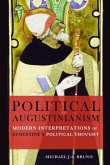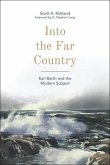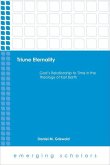Throughout the two-thousand-year span of Christian history, believers in Jesus have sought to articulate their faith and their understanding of how God works in the world. How do we, as we examine the vast and varied output of those who came before us, understand the unity and the diversity of their thinking? How do we make sense of our own thought in light of theirs? The Christian Understandings series offers to help. In this exciting volume, Charlene Burns offers a brief but thorough tour through more than two millennia of thought on the nature of evil. Starting with the contexts of the Hebrew Bible and moving forward, Burns outlines the many ways that Christian thought has attempted to deal with the reality of evil and suffering. From a personal Satan and demonic activity, to questions of free will and autonomy, to the nature of God and Gods role in suffering, Burns offers a clear and compelling overview.
Hinweis: Dieser Artikel kann nur an eine deutsche Lieferadresse ausgeliefert werden.
Hinweis: Dieser Artikel kann nur an eine deutsche Lieferadresse ausgeliefert werden.








